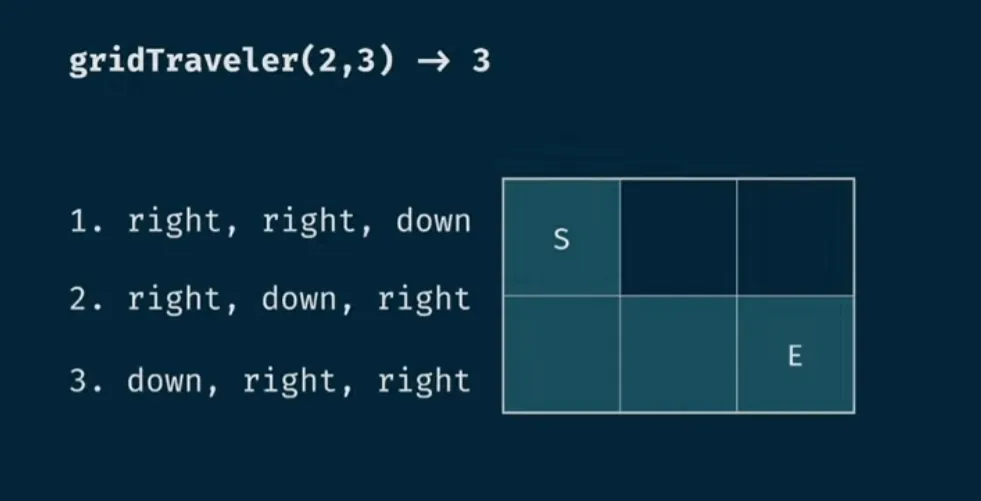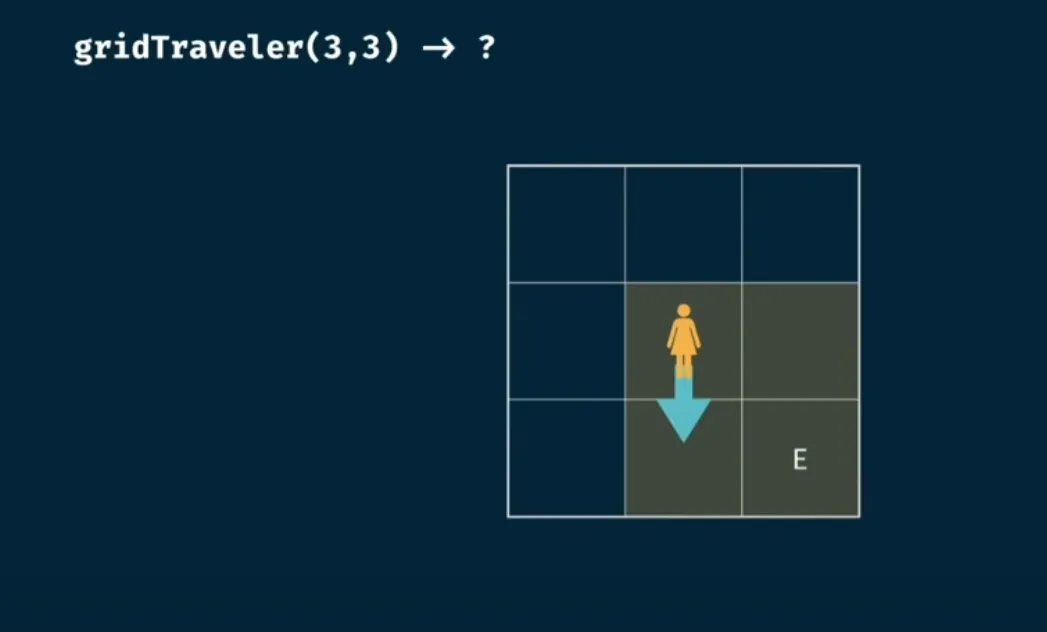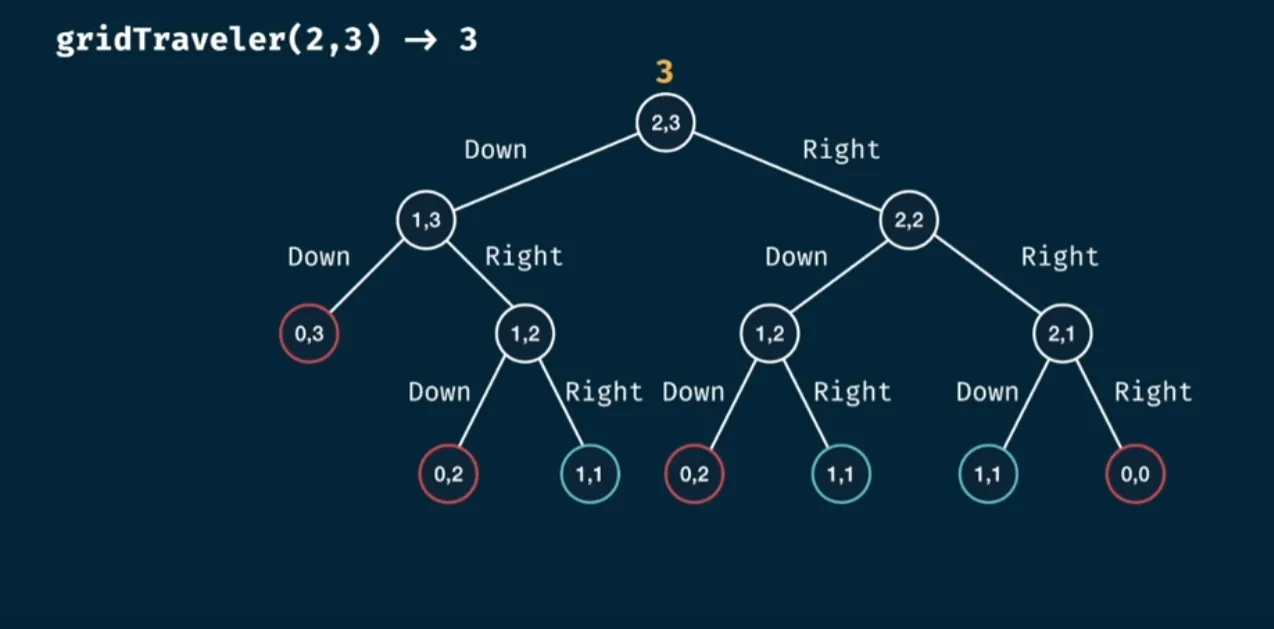Grid Traveler Recursive Memoization
Updated: 23 December 2025
Problem
A traveler on a 2D grid begins in the top left and must travel to the bottom right corner by only moving down or right
How many ways can you travel to the goal on a grid that is m*n
The resulting travel for a 2x3 grid may look like so:

Some special cases we want to ensure we can handle as well:
1gridTraveler(1,1) = 12gridTraveler(m,0) = 03gridTraveler(0,n) = 04gridTraveler(m,1) = 15gridTraveler(1,n) = 0Looking at the example, we can think about how any movement from a point in a grid shrinks the grid in some direction

From this idea we can see that the problem is somewhat recursive, we can visualize this problem as a tree that will look something like this:

Any node that has a 0 or 1 can be considered the base case where we know the number of routes that can be travelled. Furthermore, we can also see that there are some repeated nodes
Base Implementation
1export const gridTraveler = (m: number, n: number): number => {2 if (m == 1 && n == 1) return 1;3 if (m == 0 || n == 0) return 0;4
5 return gridTraveler(m - 1, n) + gridTraveler(m, n - 1);6};This implementation starts to look a lot like the Fibonacci Implementation
In the tree for this implementation the time complexity will be and the space complexity is
With memoization
If we look at the tree we see that some subtrees are repeated directly, so we can try to memoize these.
1const getKey = (m: number, n: number) => `${m},${n}`;2
3export const gridTraveler = (4 m: number,5 n: number,6 memo: Record<string, number> = {}7): number => {8 const key = getKey(m, n);9
10 if (key in memo) return memo[key];11
12 if (m == 1 && n == 1) return 1;13 if (m == 0 || n == 0) return 0;14
15 const result = gridTraveler(m - 1, n, memo) + gridTraveler(m, n - 1, memo);16
17 memo[key] = result;18 return result;19};Thinking further about it we can consider that the number of solutions of 2,3 is the same as 3,2. We can also consider this for a further optimization but that is not implemented here